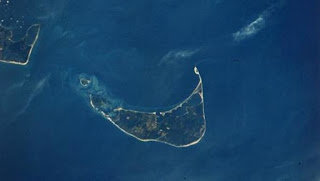Fiction writers can do a lot of different things with time apart from time travel:
flashbacks
reminiscences
time dilation
temporal stasis
suspended animation
alternative timelines
Gergory Benford's tachyonic communication
James Blish's Dirac transmitter
transtemporal communication in Poul Anderson's Starfarers
Fred Hoyle's October The First Is Too Late
When the focus is not just on time but more specifically on time travel, I think that the purest form of time travel fiction has to involve a single continuous timeline without any causality violations. We want to get into the past, not into something that looks like our past but that diverges from our timeline as soon as we intervene in it. Divergent timelines avoid contradictions but also evade the ingenuity which some writers - Robert Heinlein, Poul Anderson, Tim Powers and Audrey Niffenegger - are able to deploy in order to fit the free movements of time travelers into a single temporal dimension.
SM Stirling specializes in alternative timelines. His Island In The Sea Of Time (New York, 1998) begins with time travel but this immediately initiates a divergent alternative timeline:
"Of course, we could have wiped [our friends] all out by landing here, Ian thought. He kept that firmly to himself. Nobody wanted to think about that hypothesis. Better to believe the more comforting one, that they had simply started another branch of the tree of time." (p. 71)
These two hypotheses are what I call:
3. A Single Discontinuous Timeline.
4. Divergent Timelines. (see here)

7 comments:
Kaor, Paul!
I can't help but wonder, if "time travel" is possible, it would only "work" under the Divergent Timelines" hypothesis.
Sean
Sean,
I argue in "The Logic of Time Travel: Part I" that time travel in a single continuous timeline is logically possible but statistically improbable.
Paul.
Kaor, Paul!
I was too brief. My thought was that if time traveling is possible in a single continuous time line, how possible would it be to prevent knowledge of time traveling from spreading, becoming known at large? And wouldn't that alone change recorded history? If so, WE should be reading about real time travelers right now. So, different, diverging time lines seems more likely.
Sean
Sean,
You are right. Very unlikely sequences of events would be necessary to prevent knowledge of time travel spreading - which is why I think that time travel in a single continuous timeline is statistically improbable.
Paul.
Kaor, Paul!
The difficulties mentioned here might explain why Poul Anderson tended to prefer the "looser" concept of time traveling we see in his Time Patrol stories. I mean PA thought the TP stories involved fewer difficulties than what we see in THERE WILL BE TIME or THE CORRIDORS OF TIME.
Sean
Sean,
But he did a brilliant job in THERE WILL BE..., THE CORRIDORS OF... and THE DANCER FROM ATLANTIS.
Paul.
Kaor, Paul!
Certainly! I agree! Those were genuinely masterful, skillfully written examples of using the single continuous time line concept for time traveling novels.
Sean
Post a Comment